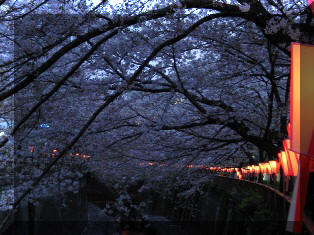

J-Pop Exchange Exclusive Interview with Michiru Oshima
Michiru Oshima
J-Pop Exchange Radio Show Exclusive Interview
Transcript
SeanBird (J-Pop Exchange): Hi, thank you for taking the time to speak with us, did your interest in music begin in your childhood? How did you become interested in music?
Michiru Oshima: When I was about 2 or 3 years old, my sister was taking piano lessons, and my mom usually took me along to listen to her playing. Even though I wasn't a student there, I remember doing stuff like singing along and answering the titles of songs. I just love music...I love it so much that I would always place my recorder down and listen to my favorite music until I fell asleep.
SeanBird: Please tell us about your musical studies and training.
Michiru Oshima: After I graduated from my kindergarten piano class, I learned to play the Electone. When I was 16, I was the youngest person to take the grand prize at an international competition. However, after that I lost interest in becoming a musician and became more interested in becoming a composer.
SeanBird: Who are your musical influences?
Michiru Oshima: No one in particular.
SeanBird: What music do you like to listen to?
Michiru Oshima: Rock music. When I was young I used to listen to brass rock like Chicago and Chase. I also listened to music like Herbie Hancock, Chick Corea, and McCoy Tyner. I liked British Rock such as Peter Gabriel and Genesis when I was in college. Lately, I like Raul Midón, the American singer-songwriter and guitarist. I also love Donald Fagen. When I want to relax, I listen to bossa nova.
SeanBird: How and when did you decide to pursue a career in music? Was it always your intention to pursue a career in music?
Michiru Oshima: When I was about to graduate from my composing classes at the college of music, my friend invited me to see the recording of a commercial. From there, I had the opportunity to start a part-time job with a music production company specializing in commercials. It wasn't necessarily my dream job, but I knew that I had to get a job after graduation, so I thought if I could get a job involving music then it might be pretty interesting.
SeanBird: Can you give us some insight into your writing process? When you compose music, how do you progress from inspiration to creation?
Michiru Oshima: In most cases, I compose in a flash of inspiration. I jump right into writing the orchestral score. When I'm composing, it just all naturally flows from me.
SeanBird: How did you become involved with composing music for anime?
Michiru Oshima: My very first project was working on Leiji Matsumoto's Saint Elmo. It was a promotional video for an electric company. Animation is not the job I do most. I work on movies much more often.
SeanBird: Please tell us about the scoring process behind a production such as Full Metal Alchemist. Where in the process do you, as a composer, become involved? Do you see the animation ahead of time? How does the process for television and movie production compare?
Michiru
Oshima: When I worked on Fullmetal Alchemist, I read some of the
original comic books. When I first met with the director, he shared
with me his vision of how he imagined the whole project. I believe
we talked about classical music for the images he had envisioned.
For a TV show, I was asked to compose music to match certain themes.
The sound director gave me about 50 songs to listen to in order to
get an idea, and I composed each song according to each of the
different themes.
When working on a movie, I had a meeting when the storyboard was
ready, and I composed songs to match each of those scenes.
SeanBird: You have had a long-standing collaborative partnership with the Moscow International Symphony Orchestra; you have utilized their musical talents on multiple projects. Please tell us more about how this fascinating collaboration began.
Michiru Oshima: An orchestra with a large number of instruments is hard to organize due to the small space of the studios in Tokyo. So one time when I needed a big orchestra for a movie, I ended up going to Moscow to record it. I was very pleased with the sound quality and how spacious the studio was, so I started to go there more often. There was a period of time where I hadn't gone to Moscow, but I went there again just last year for the Chinese movie that I was working on.
SeanBird: You also composed the score for the movies, Godzilla vs. Megaguirus and Godzilla Against Mechagodzilla; please tell us what the experience of producing music for this series was like for you.
Michiru
Oshima: As for the Godzilla series, I've worked on it three
times already. However, Godzilla has a very special feel to it, even
for the staff of the film. All of the staff on the set are bubbling
with joy while making the film. They're full of energy and have the
enthusiasm of a bunch of kids.
Since Godzilla has so many special sound effects such as his roar
and the sound for his footsteps, I have to be extra careful to
create music powerful enough, so that it won't pale in comparison to
those sound effects. Moreover, most scenes have lots of fighting and
need to be up-tempo, which requires a lot of physical energy. When
composing the music, it feels like I'm fighting directly against
Godzilla.
As for the movies, I often work with the same director multiple
times. I've already worked 8 times with Mr. Morita, a director known
for the movie Shitsurakuen ("Paradise Lost"). I'll soon be working
on my 9th project with him next year.
In the film-making industry, trust is of the utmost importance, so I
feel very fortunate to have so many directors who trust me.
SeanBird: You are also highly regarded for your work in video games. Please tell us about your experiences in composing music for Arc the Lad III, as well as your contributions to the Legend of Zelda series.
Michiru
Oshima: Honestly, I don't remember much about Arc the Lad
anymore. It was quite some time ago...
When I worked for the project of Zelda, I tried to compose songs
with my synthesizer, and that took a lot of my time. Especially for
the fight scenes, the sound of the synthesizer was not strong
enough. The staff kept asking for a "more powerful" sound, and I
remember I played those songs until my hands hurt.
Out of the games that I've worked on, I remember "ICO" the best.
That one got several awards even in the US. The music in the game is
very simple and I recorded it with a boy soprano group in England. I
still get a lot of comments from all over the world about that one.
SeanBird: In regards to your entire body of work, are there any particular pieces that stand out as favorites or have a particular significance for you?
Michiru
Oshima: Because I always hope to make each new composition my
best one, it wouldn't be any particular piece in the past. I think I
always try to approach music in a neutral state. I don't concern
myself with aspirations of becoming rich or famous, and I don't
become obsessed with certain pieces of music or who I work with.
I feel it is best to avoid any prejudices or "noise" from others.
Lately I have been composing many songs in Paris, and it is very
nice to have my own quiet time there.
SeanBird: Do you have any current or upcoming projects that you would like to talk about?
Michiru
Oshima: Right now, I'm working on four different movies, and one
of them will be a wonderful animated movie. You have to see that
one!
I also have another animated project going on which I've already
finished recording. I'll also be working on a Dubai (Saudi Arabia)
animation project next year.
I have a request for a French musician's CD project and a concert
piece as well. I will be announcing my new concerto in Japan next
April. I have a lot work going on outside of video and film-making
nowadays.
SeanBird: Thank you again for taking time out of your busy schedule to speak with us.
Michiru Oshima:
It was my pleasure.